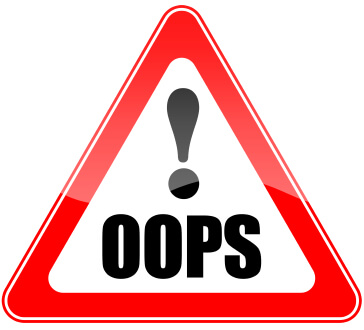How Often Should I Take Practice GMAT CATs?
 Practice tests or mock exams are one of your most valuable tools as you get ready for your official GMAT—but there’s definitely a wrong way to use your CATs. Here’s how to know when to take your CATs.
Practice tests or mock exams are one of your most valuable tools as you get ready for your official GMAT—but there’s definitely a wrong way to use your CATs. Here’s how to know when to take your CATs.
When should I take a practice GMAT?
Practice CATs (or mock GMATs) are very useful for three things:
4 Steps to Analyze Your GMAT Practice Tests (Part 1)

How many GMAT practice tests have you taken so far? Are you satisfied—or frustrated—with your progress? Read more
How to Analyze Your Manhattan Prep Practice CAT for the GMAT

Did you know that you can attend the first session of any of our online or in-person GMAT courses absolutely free? We’re not kidding! Check out our upcoming courses here.
If you’ve just finished taking a three-hour practice CAT, I assume you didn’t do it “just for fun.” You probably want to glean some information from the ordeal! Most people focus on the overall score and the Quant and Verbal percentiles. I’m here to say STOP. Don’t do that!! But what should you do instead? Read more
4 Kinds of Questions to Review
What’s the difference between a real GMAT and a practice one? On the real GMAT, you’re finished after three and a half hours, give or take. But while you are preparing for the GMAT, finishing a practice test is much different than being finished with it. As I’ve written about before, practice tests are great assessment tools but not necessarily great learning tools. Practice tests tell you what you would likely score on the real GMAT if you answered 37 quant and 41 verbal questions with the same level of aptitude that you had on the questions you just saw. But if you want to see your GMAT score improve, you’re going to have to spend some time reviewing what you did, how you did it, and how you could do it better. To help you on that quest to get better, here are four kinds of questions that you can use to help improve your score.
1) Questions You Got Wrong
 This one is the obvious one- if you want to get better at the GMAT, you need to find questions that you got wrong and learn how to get them right. But this isn’t as simple as finding an explanation online and memorizing it. Studying for the GMAT is more than just trying to read and memorize a bunch of facts- it’s about changing the way that your brain thinks about how to manipulate an equation or dissect an argument. And what better way for your brain to learn how to tackle a challenge than to give your brain more time to do so. In the middle of a test, your brain is rushed. You might have had to give up on the question halfway through or guessed on it immediately to save yourself time. But when you give your brain more time to discover that A-HA! moment, your brain is much more likely to recognize what to do the next time you see a similar hurdle. After you spend some time trying to solve it on your own, feel free to search for an explanation or a better way of solving a problem. However, you have to make sure that the explanation you read is something that you can do in your own head or your own paper come test day.
This one is the obvious one- if you want to get better at the GMAT, you need to find questions that you got wrong and learn how to get them right. But this isn’t as simple as finding an explanation online and memorizing it. Studying for the GMAT is more than just trying to read and memorize a bunch of facts- it’s about changing the way that your brain thinks about how to manipulate an equation or dissect an argument. And what better way for your brain to learn how to tackle a challenge than to give your brain more time to do so. In the middle of a test, your brain is rushed. You might have had to give up on the question halfway through or guessed on it immediately to save yourself time. But when you give your brain more time to discover that A-HA! moment, your brain is much more likely to recognize what to do the next time you see a similar hurdle. After you spend some time trying to solve it on your own, feel free to search for an explanation or a better way of solving a problem. However, you have to make sure that the explanation you read is something that you can do in your own head or your own paper come test day.
Are You Taking Too Many Practice GMATs?
My GMAT students are often surprised when I advise them not to take a practice test.
 I don’t advise this for every student on every occasion; there are some legitimate uses for practice tests. In general though, I find that my students take too many practice tests at the expense of other more beneficial forms of study for a given circumstance.
I don’t advise this for every student on every occasion; there are some legitimate uses for practice tests. In general though, I find that my students take too many practice tests at the expense of other more beneficial forms of study for a given circumstance.
Think of the GMAT like a Mozart sonata. Let’s say you are a pianist, and you want to learn the sonata. Would you begin by playing the whole piece from start to finish? No, instead you would work in small sections. You would identify the sections that are easy, and you would work on those sections just enough to maintain your ability. Mainly, you would be concerned with the difficult sections of the piece, which you would practice slowly and intently. Not until you had mastered those sections would you move on.
After you have put in all that practice time, you want to make sure that you can maintain your ability within the context of the larger piece. That’s when you want to play the whole piece: when you want to check to see whether your prior work is ingrained or whether you forget it when you are distracted by the other demands of the piece.